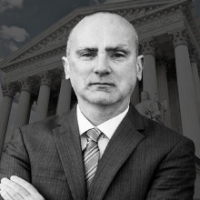 Cleburne Felony Lawyers, Texas
Cleburne Felony Lawyers, Texas
Sponsored Law Firm
-
 x
x

Click For More Info:
-
Law Office of Robert R. Jones III
2411 Emancipation Ave, Suite 202, Houston, TX 77004» view mapCriminal Defense Expert Representation for Reasonable Rates
If you need representation, call me 24/7.
800-883-8760
Sponsored Lawyers
1-10 of 12 matches
Criminal, DUI-DWI, Expungement, Felony, Misdemeanor
My name is Rob Christian, and I am a partner at Christian & Christian Law Firm. Navigating criminal charges in Texas demands more than generic legal support; it calls for a deeply engaged local counsel who understands the landscape and is committed to your defense. With my background as a former Hood County District Attorney and a two-decade tenure as a prosecutor, I bring a nuanced perspective to each case. During my years in the legal field, I have cultivated enduring connections with north central Texas law enforcement and local prosecutors. This has equipped me with insider knowledge of the distinct policies and procedures across various courts, which informs my approach to legal defense. To me, you are not simply a case number. We will journey through the criminal justice process hand-in-hand. My counsel on whether to enter a plea or proceed to trial is always centered around your best interests, ensuring you are well-informed every step of the way. To schedule your free consultation, please visit online or call 682-936-4003.
(more)Criminal, DUI-DWI, Felony, Misdemeanor
With over 15 years of experience representing clients charged with DWI and other criminal charges in Tarrant County and throughout the Dallas-Fort Worth area, Craig A. Dameron has been recognized by his peers as a top criminal defense attorney. Contact the Fort Worth Criminal Defense Attorney online or call 817-222-0624 for a FREE consultation.
(more)Criminal, DUI-DWI, Misdemeanor, Felony, White Collar Crime
Christopher Lankford is licensed to practice law in all Texas state courts, Federal court (Northern District of Texas), and the Supreme Court of the United States. He focuses exclusively on criminal and DWI cases in Tarrant County, Texas. By practicing exclusively criminal defense in Tarrant County, he knows the ins and outs of the courts. He takes pride in fighting for individual's rights, freedom, and protecting them from the harsh consequences of the criminal justice system. Christopher has been named a Top 100 Trial Lawyer by the National Trial Lawyers Association for Texas (North) and Top Attorney by Fort Worth, Texas Magazine every year since 2014. He is rated "10.0" and "Superb" by Avvo attorney ratings, Avvo's highest rating. Christopher graduated from Baylor Law School with a concentration in criminal law. He is also a graduate of the Texas Criminal Trial College in Huntsville, TX, class of 2014. The Criminal Trial College is considered one of the most rigorous pieces of training a criminal defense lawyer can undergo. He is a member of the State Bar of Texas, Federal Bar Association, Tarrant County Criminal Defense Lawyers Association (TCCDLA), Texas Criminal Defense Lawyers Association (TCDLA), Tarrant County Bar Association (TCBA), Christian Trial Lawyers Association (CTLA), National College for DUI Defense (NCDD), and the College of the State Bar of Texas. Christopher is a United States Marine Corps veteran. Enlisting a month after September 11, 2001, he served primarily as a legal administration clerk. He also served in key roles such as a security specialist and a marksmanship instructor. He now spends much of his free time volunteering, attending sporting events, or participating in triathlons, endurance, and adventure races.
(more)


 Robert Jones San Antonio, TX
Robert Jones San Antonio, TX AboutLaw Office of Robert R. Jones III
AboutLaw Office of Robert R. Jones III Practice AreasSpecializations
Practice AreasSpecializations



